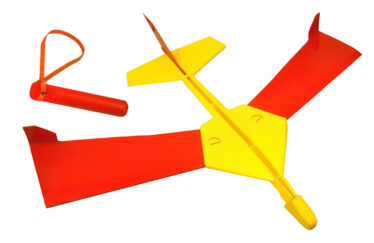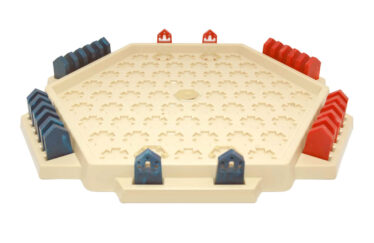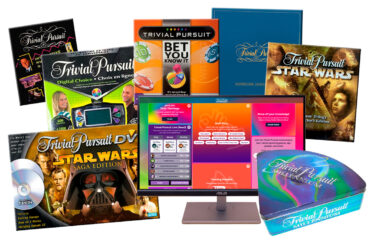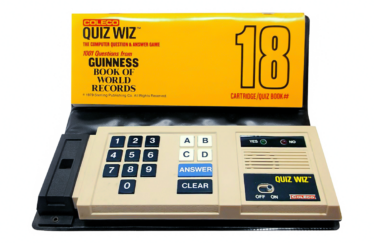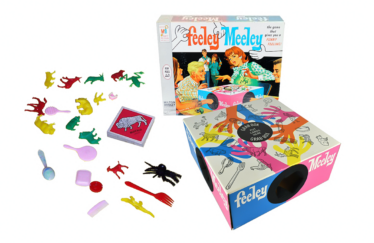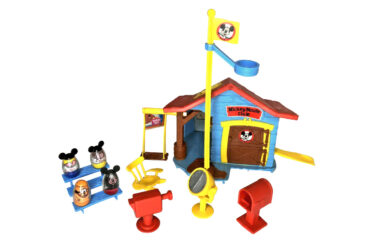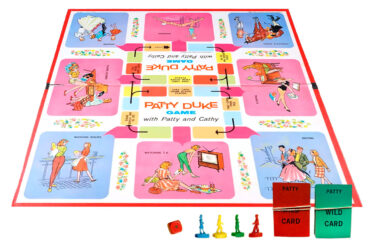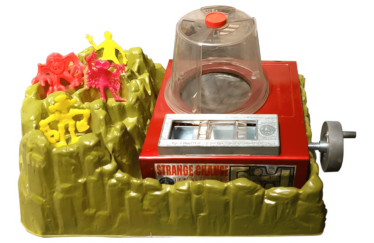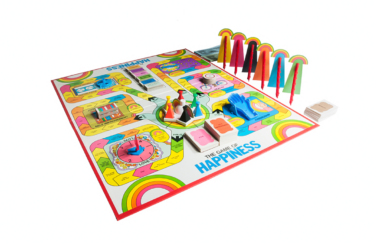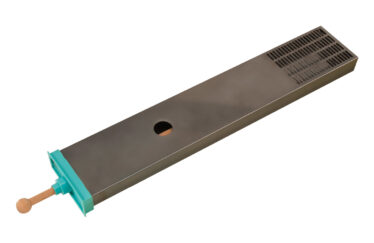
Zip Wing Rocket Glider from Lakeside (1965)
Released in 1965 by Lakeside, the Zip Wing Rocket Glider was an outdoor toy that combined aerodynamic elements of rockets, planes, and gliders.
Tabletop Games, Vintage Toys & Games
Topple from Kenner (1979)
Released by Kenner in 1979, Topple combined domino theory and tropes from chess into an action strategy game for two players.
2024 Holiday Gift Guide
The annual Toy Tales Holiday Gift Guide features contemporary gifts inspired by classic toys and games.
Tabletop Games, Vintage Toys & Games
In Pursuit of Trivia: From Analogue to Artificial Intelligence
Nicolas Ricketts explores how Trivial Pursuit has evolved to keep fans engaged with the question-and-answer game first released in 1982.
Quiz Wiz from Coleco (1979)
Released in 1979 by Coleco, Quiz Wiz was a computerized question-and-answer game that challenged players to answer 1,001 questions from a variety of categories.
Feeley Meeley from Milton Bradley (1967)
The Feeley Meeley party game was published in 1967 by Milton Bradley and claimed to be “the game that gives you a FUNNY FEELING!”
Mickey Mouse Clubhouse from Hasbro (1976)
Released in 1976 under Hasbro’s Romper Room brand, the Mickey Mouse Clubhouse playset invited children into the world of the Mickey Mouse Club television series by mirroring the variety show’s characters and environment.
Tabletop Games, Vintage Toys & Games
Patty Duke Game from Milton Bradley (1963)
Released by Milton Bradley in 1963, the Patty Duke Game challenged players to match cards illustrating the activities of identical cousins, Patty and Cathy.
Strange Change Machine from Mattel (1968)
In 1968, 25 years before Jurassic Park hit cinemas, Mattel introduced Strange Change Machine, a clever toy that allowed children to “magically” create their own prehistoric creatures.
Happiness from Milton Bradley (1972)
Released in 1972 by Milton Bradley, the Happiness Game was a throwback to the days of flower power and hippie love culture.
Easy-Pop Corn Popper from Kenner (1964)
In 1964, with an Easy-Bake hit on their hands, Kenner released their first major accessory for the oven, the Easy-Pop Corn Popper.
Otherworldly, Vintage Toys & Games
Ghosts! from Milton Bradley (1985)
Published by Milton Bradley in 1985, Ghosts! was a strategy game that combined glow-in-the-dark effects with the supernatural.

